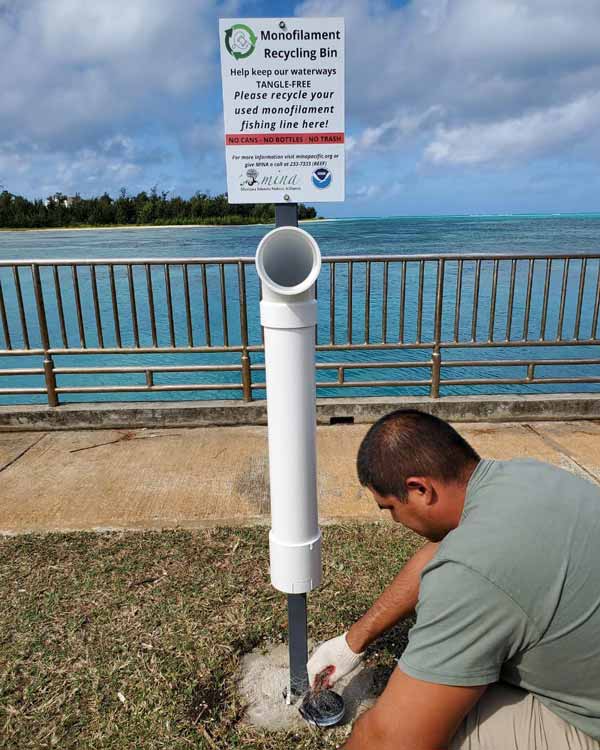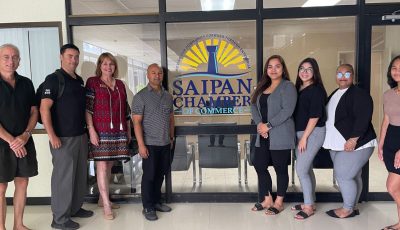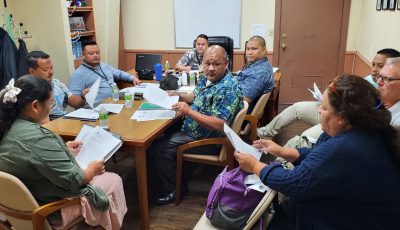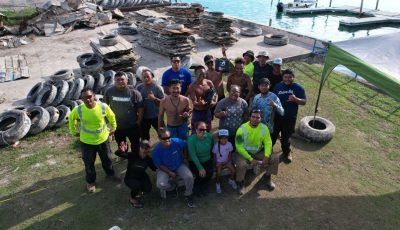MINA installs 10 monofilament recycling bins on Saipan
Protecting wildlife by keeping the CNMI ‘tangle-free’

To promote responsible fishing and help protect turtles and birds from getting entangled in fishing lines, 10 monofilament line bins have been strategically installed in high-usage areas on Saipan where fishermen can place their used monofilament lines to be collected and recycled. The bins are made possible through the Mariana Islands Nature Alliance’s Monofilament Line Collectors pilot project, with support from the National Oceanic and Atmospheric Administration Pacific Islands Regional Office. (Iva Maurin)
The Mariana Islands Nature Alliance recently launched a Monofilament Line Collectors pilot project to promote responsible fishing for recreational and non-commercial fishers on Saipan while also protecting marine life.
MINA is calling on everyone to help keep the waterways tangle-free by recycling used monofilament fishing lines in the 10 monofilament recycling bins the group had installed strategically on island.
Funding for the project was supported by the National Oceanic and Atmospheric Administration Pacific Islands Regional Office.
Ten bins have been installed in areas most often used by recreational hook and line fishers: Smiling Cove Marine, Garapan Fishing Base, and Sugar Dock. MINA’s Tasi Watch Community Rangers collect the used fishing lines every week “and MINA plans to work with teachers in the hope they can reuse these fish lines for potential art projects,” said MINA executive director Roberta Guerrero.
“The Monofilament Line bins help prevent fishing lines from entering the ocean and, as a result, will help save our marine life, including sea turtles, from harm,” she added.
All over the world, carelessly discarded fishing lines pose a peril to wildlife, causing injuries and death, particularly among turtles and birds, which ingest or get entangled in the gear. Entanglement in carelessly discarded fishing lines moves the animals to struggle to escape, causing lacerations, which leads to exhaustion, starvation, and dehydration.
Worse, according to studies, monofilaments take 600 years to decompose.
NOAA Fisheries also advises fishermen to watch their gear and not leave them unattended, and to retrieve and recycle old lines and dispose of them responsibly.
Aside from the new monofilament recycling bins, MINA is also recruiting individuals to become part of the Tasi Watch Community Ranger Program, to further their mission in providing environmental service to the CNMI community.
For more information about MINA’s monofilament lines, and the Tasi Watch Community Ranger Program, visit minapacific.org, or contact MINA via (670) 233-7333 or minaoutreach@gmail.com.
MINA was established on Saipan in 2005 as a 501(c)3 non-profit corporation.



























